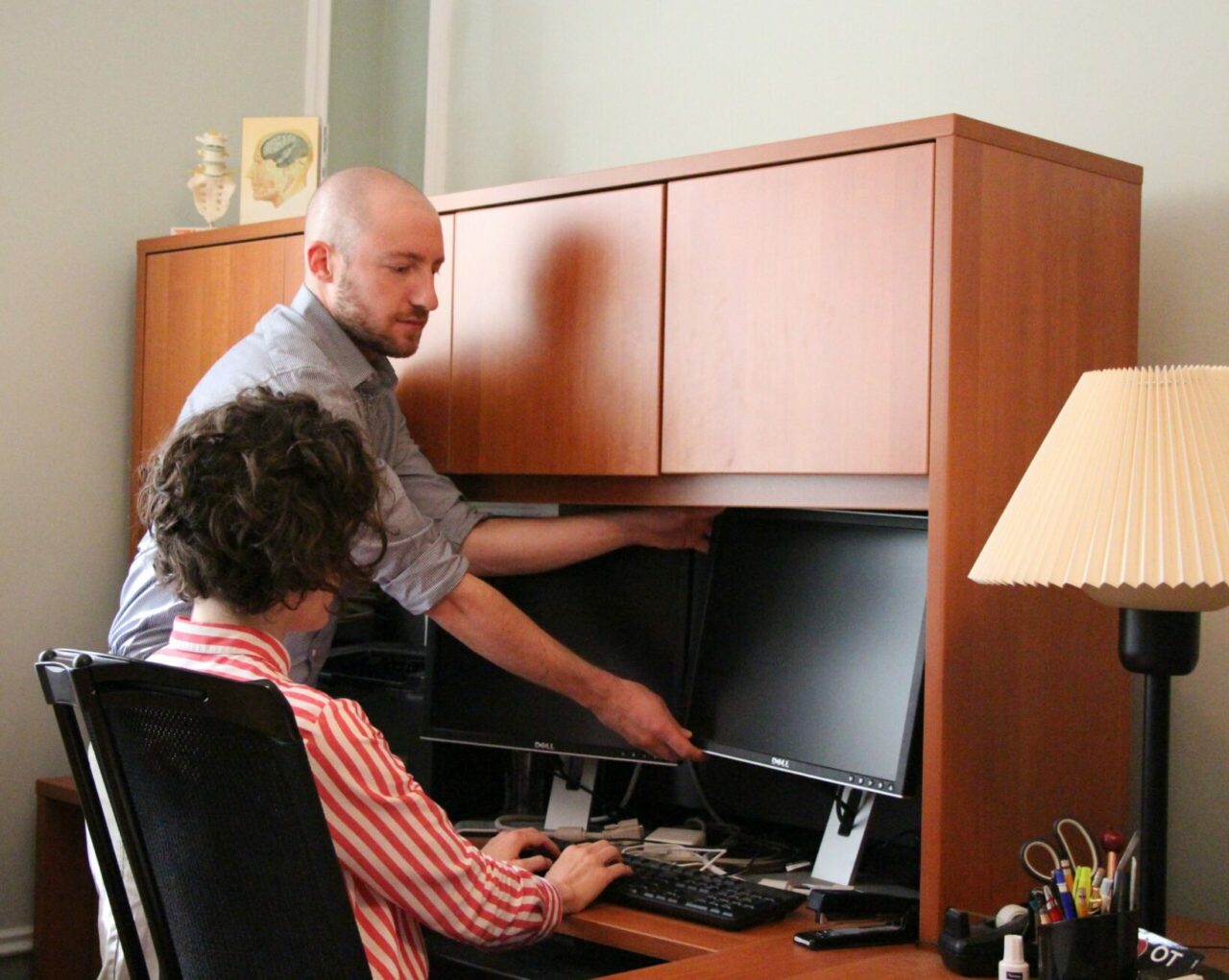Ergonomics is the science of matching work environments to fit the physiological, psychological, and cognitive capabilities of the worker. According to the Canadian Association of Occupational Therapists, a poor fit can result in an environment where the worker may experience physical and psychological stress, which can result in health problems and injuries to muscles, joints and nerves.
To address this issue, Dr. Sara Saunders, an Occupational Therapist and Associate Director of the Occupational Therapy program at McGill’s School of Physical & Occupational Therapy (SPOT), will lead a group of master’s students, as they perform workplace evaluations across the McGill campus. The initiative, conducted in partnership with McGill’s Human Resources Disability Management Program, will introduce the occupational therapy students to new areas of practice, allowing them to evaluate, define and implement the role of an occupational therapist in an underserved/new domain.
Working in pairs, the students will spend time observing work spaces over several weeks this summer to assess the physical environment, patterns of office habits, and the different demands of identified clients. They will also conduct interviews with workers on topics such as how they prefer to engage in tasks, what is non-negotiable in their approach to work, their own identified key health/stress/physical concerns, previous strategies that have or have not worked. These interviews will provide information to build recommendations for office health that are tailored, acceptable and feasible for that individual or department.
The initial service provided through this initiative is ergonomic workstation screening and postural hygiene. Further services dependent on client interest and needs include stress management strategies for meaningful and satisfying workplace engagement, and education on resources focusing on workplace health and disability management.
Dr. Saunders brings to this initiative a clinical background in work disability and ergonomics. She has a doctorate in Rehabilitation Science, is a Certified Disability Management Professional and has completed the CIHR Work Disability Management Prevention Training Program at the University of Toronto. Joining her to lead the program is Hiba Zafran, a doctoral candidate working in the field of mental health with over a decade of clinical experience that includes the return to work integration of individuals experiencing workplace burnout, anxiety, and depression. She is a co-investigator on CIHR funded research projects examining how to create recovery-oriented, health-promoting services. Finally, Caroline Storr, Associate Professor at SPOT and the Academic Coordinator of Clinical Education, will also support this initiative, leveraging her significant experience in creating and developing role-emergent internships in both institutional and community organizations.
If you would like more information on this project and how your department could get involved, please contact Sara Saunders (sara.saunders@mcgill.ca) or Hiba Zafran (hiba.zafran@mcgill.ca).
June 11, 2015

